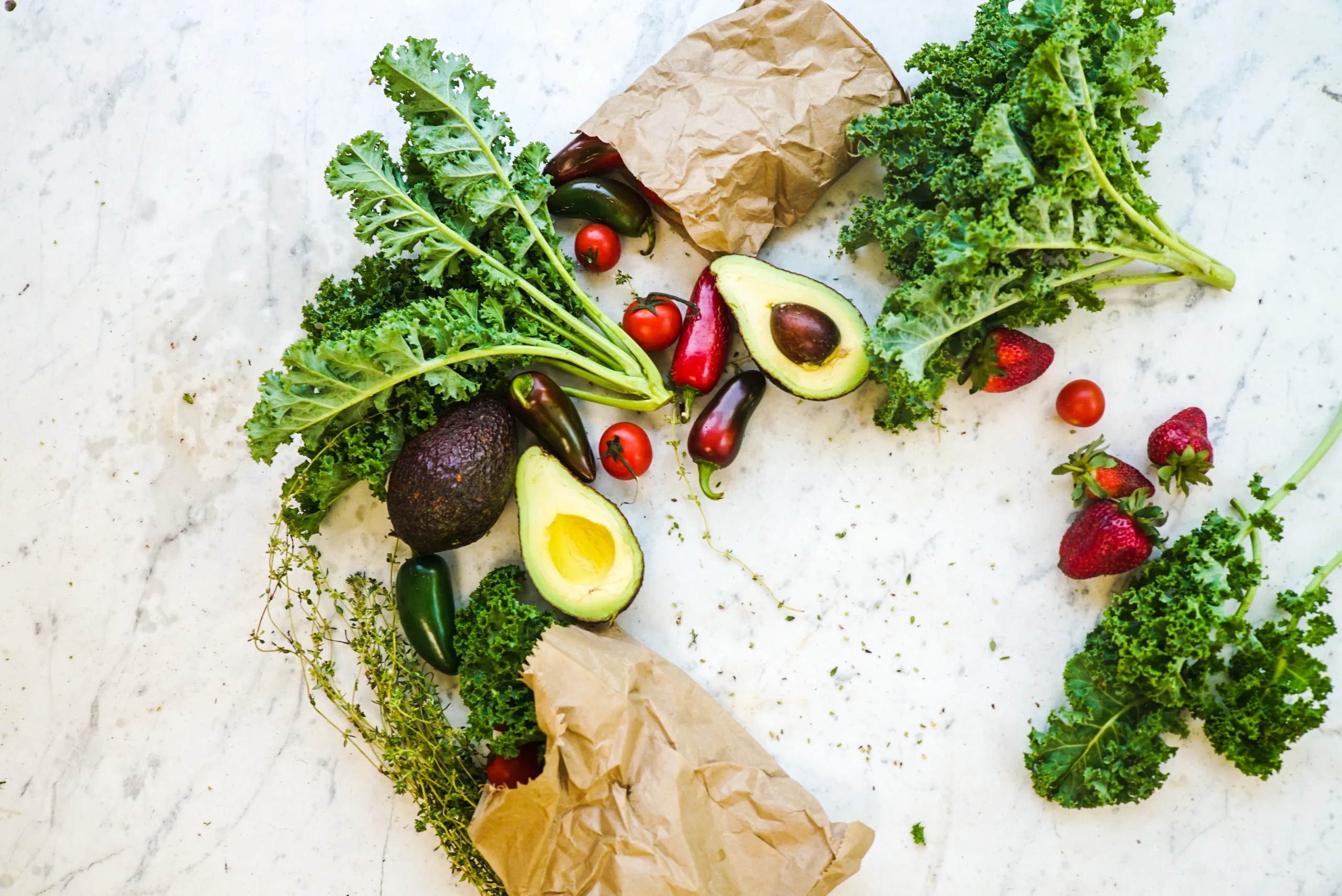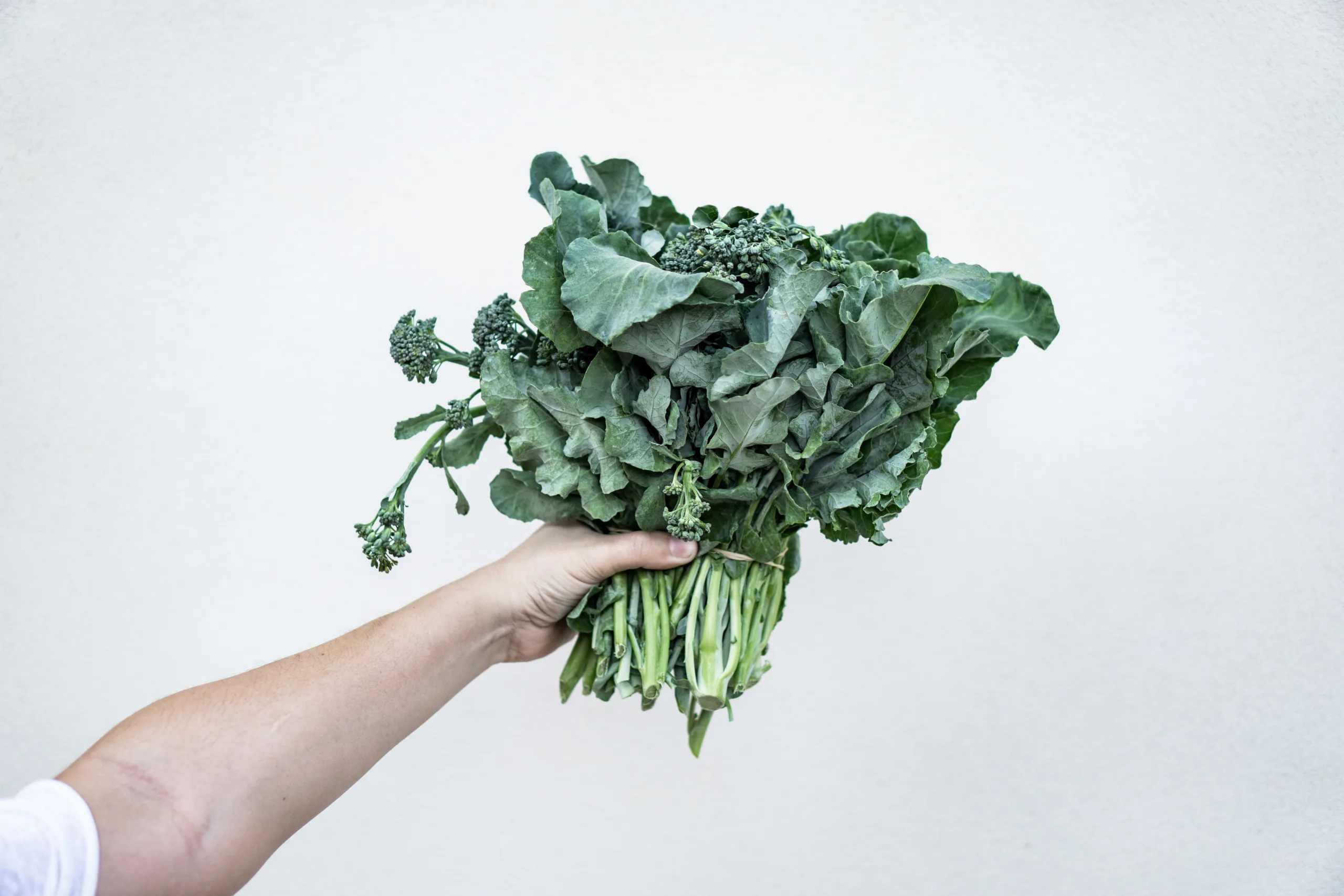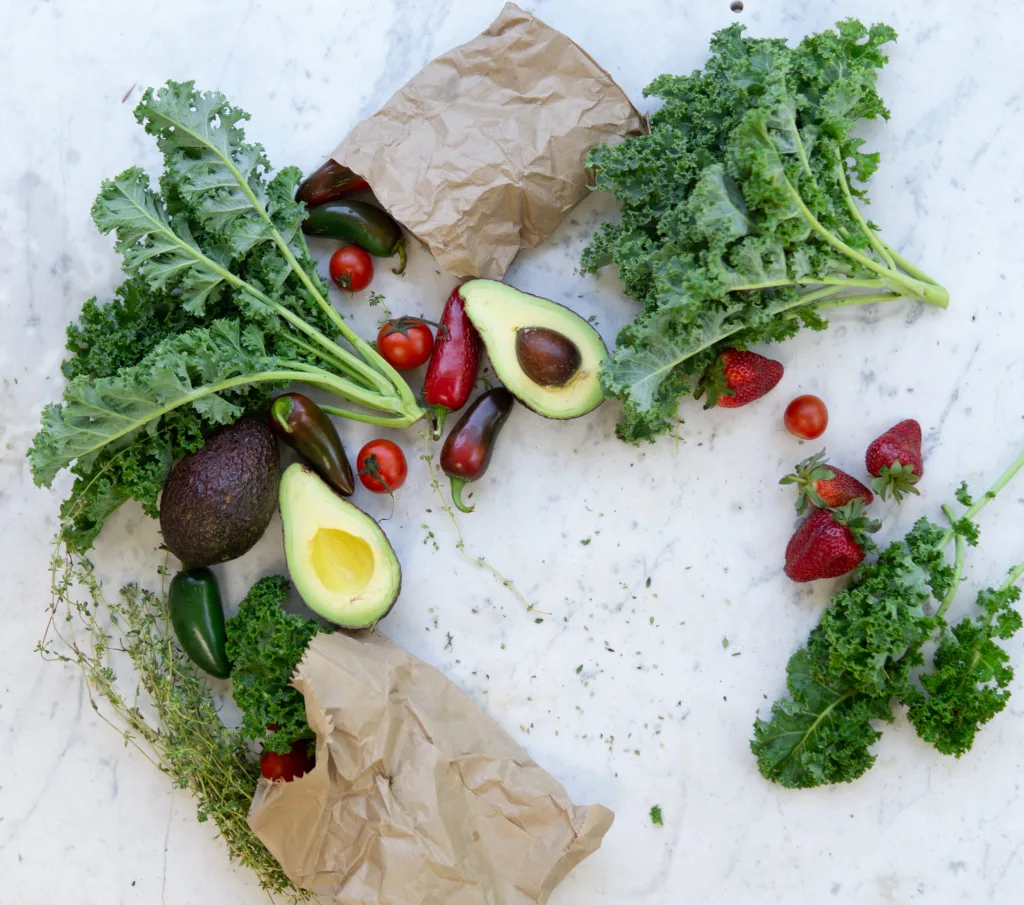Kale is a superfood that is high in fiber, vitamins and minerals, but does it fit into a Low FODMAP diet?
If you’re following a Low FODMAP diet, you may be wondering if kale is allowed. FODMAPs are a type of carbohydrate found in certain foods that can cause digestive discomfort for some people. Knowing if kale is low in FODMAPs can help you decide if it’s something you should include in your diet.
This article will answer the question “Is Kale Low FODMAP?” by looking at its nutritional content, how it fits into the Low FODMAP diet, and how to include it in your meal plan. We’ll also look at some other alternatives to kale that are suitable for a Low FODMAP diet. Read on to learn more!
Yes, kale is low FODMAP and can be safely consumed in servings of one cup or 75 grams. However, it is important to note that some people with IBS may be sensitive to this vegetable, so it is best to consult your doctor before adding kale to your diet.
What Makes Kale a Low FODMAP Food?
Kale is a low FODMAP food due to its low levels of FODMAPs. FODMAPs, or Fermentable Oligosaccharides, Disaccharides, Monosaccharides and Polyols, are short-chain carbohydrates that are poorly absorbed by the small intestine. When these carbohydrates reach the large intestine, they can cause digestive symptoms such as gas and bloating. Kale is naturally low in FODMAPs and contains only trace amounts of the carbohydrates. This makes it a great choice for those following a low FODMAP diet.
Kale also contains fiber which can help with digestion. Fiber helps to add bulk to stools and can make them easier to pass through the intestines. This can help to reduce digestive symptoms such as constipation and diarrhea which are often caused by eating high-FODMAP foods.
Kale is also a great source of vitamins and minerals, including Vitamin A, Vitamin C, Iron, Calcium and Potassium. These vitamins and minerals are essential for maintaining good health and can be beneficial for those following a low FODMAP diet who may be at risk of nutrient deficiencies due to their restricted diets.
Overall, kale is an excellent choice for those following a low FODMAP diet as it is naturally low in FODMAPs and provides numerous health benefits. It is also versatile and can be used in many different dishes from salads to soups or stir-fries making it an easy addition to any meal plan.
The Benefits of Kale for People with IBS
Kale is an incredibly nutritious vegetable, and it can be an excellent addition to the diet of people with Irritable Bowel Syndrome (IBS). This leafy green is full of vitamins, minerals, and dietary fiber, which can help improve digestion and reduce symptoms associated with IBS.
Eating kale on a regular basis can provide a variety of benefits for people with IBS. For one, kale is high in fiber, which can help ease constipation by increasing the bulk of stool and helping food move through the digestive system more quickly. Additionally, kale contains insoluble fiber which helps to promote regular bowel movements and keep things moving along smoothly in the digestive tract.
Kale is also a great source of vitamin C, which helps maintain a healthy immune system. Studies have shown that people with IBS are more likely to suffer from nutrient deficiencies due to their impaired absorption of vitamins and minerals. Consuming foods high in vitamin C like kale can counteract this issue and help ensure that individuals get the nutrients they need.
Click here to preview your posts with PRO themes ››
Kale is also rich in antioxidants, which can help reduce inflammation throughout the body. Inflammation is a common symptom of IBS, so consuming foods high in antioxidants like kale may help reduce this symptom as well as other associated ones such as abdominal pain and bloating.
Finally, kale contains calcium which has been linked to improved digestion. Calcium helps relax muscles in the digestive tract and stimulates contractions that aid in food movement through the gut. It also appears to be beneficial for reducing symptoms like cramping, diarrhea, and constipation associated with IBS.
Overall, adding kale to your diet can provide numerous benefits for people with IBS. It’s packed with essential nutrients that can improve digestion and reduce inflammation throughout the body – making it an excellent choice for anyone looking to better manage their condition.
Introduction
Kale is a nutritious, low FODMAP vegetable that can be enjoyed in a variety of ways. It is high in fiber, vitamins, and minerals and is an excellent choice for people following a low FODMAP diet. In this article, we will discuss how to prepare and eat kale on a low FODMAP diet.
Choosing Kale
When shopping for kale, look for bunches with bright green leaves that are firm and crisp. Avoid any bunches with yellow or wilted leaves as this indicates that the kale is too old. Kale should also smell fresh with no off odors or mold present on the leaves.
Preparing Kale
When preparing kale, it is important to remove the tough stems before cooking or eating it raw. To do this, hold the stem in one hand and use the other hand to pull off the leaves from the stem until all of them have been removed. The leaves can then be washed and dried before being added to your recipe of choice.
Cooking Kale
Kale can be cooked in a variety of ways including steaming, sautéing, boiling, roasting, or even eating it raw in salads or smoothies. When steaming or boiling kale, make sure not to overcook it as this will cause it to become mushy and lose its flavor. For sautéed kale, add a tablespoon of oil to a hot pan over medium heat and then add the chopped kale. Sauté for 3-4 minutes until tender but still slightly crisp. Roasted kale can be made by tossing chopped kale with olive oil and seasonings then baking at 400 degrees Fahrenheit for 15-20 minutes until golden brown and crispy.
Eating Kale
Kale can be enjoyed as part of both savory dishes or sweet recipes depending on your personal preference. For savory recipes like soups or stews add chopped kale towards the end of cooking so that it retains its nutrients without becoming overly soft or mushy. For sweeter recipes like smoothies or salads mix together chopped kale with fruit such as bananas, strawberries, apples, peaches etc., along with yogurt or nut butter for added creaminess and protein if desired.
Can You Eat Too Much Kale on the Low FODMAP Diet?
Kale is a popular vegetable with many health benefits. It is high in fiber, antioxidants, and vitamins and minerals. But can you eat too much of it on the low FODMAP diet?
The low FODMAP diet is designed to reduce symptoms of irritable bowel syndrome (IBS). It restricts certain carbohydrates known as fermentable oligosaccharides, disaccharides, monosaccharides and polyols (FODMAPs). Kale contains some FODMAPs, so it should be consumed in moderation.
Click here to preview your posts with PRO themes ››
There is no specific limit for how much kale you can eat on the low FODMAP diet. However, it is recommended that you limit your intake to one cup per serving. This amount should be enough to provide important nutrients without causing digestive distress.
If you are following the low FODMAP diet strictly, then you may want to avoid eating more than a cup of kale per day. Eating too much kale may cause digestive symptoms such as bloating and gas. If this happens, then it is best to reduce your intake or switch to other low-FODMAP vegetables like spinach or broccoli instead.
It is also important to remember that everyone’s tolerance for FODMAPs may be different. If you find that you can tolerate more than a cup of kale without any issues, then it may be safe for you to consume it in larger amounts. However, if your symptoms worsen after consuming larger amounts of kale, then it’s best to reduce your intake or switch to other vegetables instead.
In conclusion, while there is no specific limit for how much kale you can eat on the low FODMAP diet; it is best not to consume more than one cup per serving as this amount should provide enough nutrients without causing digestive distress. Everyone’s tolerance for FODMAPs may vary so if your symptoms worsen after consuming larger amounts of kale then reduce your intake or switch to another vegetable instead.

Tips for Enjoying Kale on a Low FODMAP Diet
Eating kale while following a low FODMAP diet doesn’t have to be difficult. With a few simple tips, you can enjoy kale in all of its nutritious glory. Here are some tips for enjoying kale on a low FODMAP diet:
First, it’s important to remember that kale is considered a high-FODMAP food, so it’s best to limit your portion size when eating it. The ideal serving size is 1/2 cup cooked or 1 cup raw. If you’re using kale in salads or other dishes, be sure to measure out the proper portion size.
Second, if you find that eating large amounts of kale causes digestive upset, try steaming it instead of eating it raw. This will help break down some of the FODMAPs and make the kale easier to digest.
Third, there are several ways to prepare kale that will make it more enjoyable and easier to digest. Try adding garlic-infused oil and lemon juice to cooked kale or adding chopped nuts and dried fruit to a raw salad. You can also puree cooked kale with olive oil and garlic, and use it as a sauce for your favorite dishes.
Finally, don’t forget about all of the other delicious low-FODMAP vegetables out there! Kale is an excellent source of nutrition, but there are plenty of other vegetables that can provide similar benefits without triggering digestive upset. Try experimenting with different vegetables like spinach, bok choy, and zucchini to see which ones work best for you.
Substitutes for Kale on the Low FODMAP Diet
Kale is an incredibly nutritious vegetable, but it’s not suitable for those following a low FODMAP diet. Fortunately, there are plenty of other vegetables that fit into a low FODMAP diet and provide similar health benefits as kale.
A great substitute for kale is spinach. This leafy green is a rich source of vitamins A and C, as well as iron, calcium, and magnesium. It’s also low in FODMAPs and can be eaten in moderation on the low FODMAP diet.
Another excellent option is Swiss chard. This leafy green is packed with nutrients like vitamin A, C, K, folate, and magnesium. It’s also low in FODMAPs and can be consumed in moderate amounts on the low FODMAP diet.
Click here to preview your posts with PRO themes ››
Collard greens are another option for those following the low FODMAP diet. They are an excellent source of vitamins A and C and contain magnesium, calcium, iron, potassium, phosphorus, and fiber. Collard greens are also low in FODMAPs so they can be eaten in moderation on this diet.
Cabbage is another great substitute for kale on the low FODMAP diet. It’s a good source of vitamin C and contains fiber as well as other essential nutrients like potassium and magnesium. It’s also relatively low in FODMAPs so it can be consumed in moderate amounts on this diet.
Finally, bok choy is a great substitute for kale on the Low FODMAP Diet. This leafy green is packed with vitamins A and C as well as essential minerals like potassium and calcium. It’s also relatively low in FODMAPs so it can be consumed in moderate amounts on this diet.
Overall, there are plenty of nutritious vegetables that fit into the Low FODMAP Diet that can provide similar health benefits to kale such as spinach, Swiss chard collard greens cabbage and bok choy .
Kale is a Low FODMAP Friendly Superfood
Kale is a versatile superfood that has been gaining popularity in recent years. It’s low FODMAP friendly, meaning it won’t cause digestive issues for those with IBS. Kale is also packed with nutrients, including vitamins A, C, and K, and minerals like iron and calcium. Plus, it’s an excellent source of fiber. With all these benefits, it’s no surprise that kale is becoming a staple ingredient in many recipes.
Delicious Recipes Featuring Kale
There are so many delicious ways to incorporate kale into your meals. For breakfast, try making a hearty kale and potato frittata or adding some sautéed kale to your omelet. For lunch or dinner, whip up a batch of creamy kale soup or mix some chopped kale into your favorite pasta dish. And if you’re looking for something sweet, try baking some vegan kale muffins for a healthy snack.
Low FODMAP Friendly Recipes Featuring Kale
If you’re following the Low FODMAP diet, there are plenty of recipes featuring kale that won’t aggravate your digestion. Try making a simple salad of shredded kale and fresh vegetables topped with olive oil and lemon juice for a light lunch or dinner option. Or try swapping out the usual noodles in lasagna for some thinly sliced kale leaves instead. There are also plenty of delicious smoothies that use spinach or other low FODMAP ingredients along with kale for added nutrition.
No matter how you choose to enjoy this superfood, there are plenty of ways to add more nutrition to your meals with low FODMAP friendly recipes featuring kale!

Conclusion
Kale is generally considered to be a low FODMAP food, although it is still important to monitor your intake as some people may be more sensitive to the FODMAPs in kale than others. In general, a serving of kale of 75g per person should not cause any adverse effects for people with IBS. It is also important to note that kale is a nutrient-dense food and can provide many health benefits when consumed regularly.
When preparing kale, it is important to remove any tough stems and steam or boil the leaves until they are tender. This will help to reduce the FODMAP content and make them easier to digest. It is also important to avoid adding high FODMAP ingredients such as garlic or onions when cooking with kale.
Overall, kale can be a great addition to a low FODMAP diet, as long as it is prepared properly and eaten in moderation. It provides a range of health benefits and can be enjoyed in many different ways.
In conclusion, kale can be consumed safely on a low FODMAP diet if the right precautions are taken. A serving of 75g per person should not cause any adverse effects for those with IBS, however it is still important to monitor your intake closely if you are particularly sensitive to FODMAPs.

